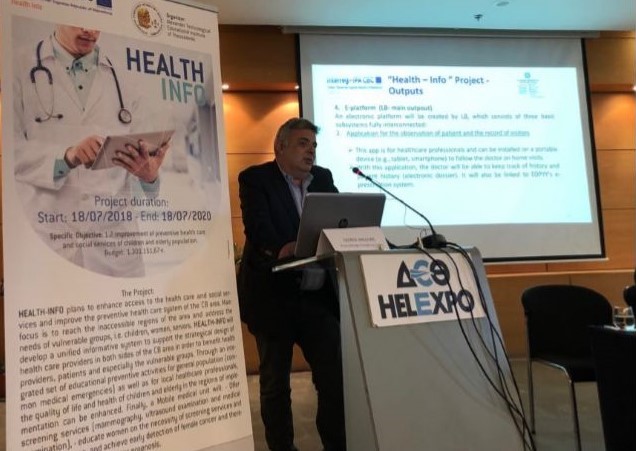Children, the elderly and other vulnerable people living in the Greece-North Macedonia cross-border region look set to receive better medical services thanks to the Health Info project, which has been supported through the EU’s Instrument for Pre-Accession Assistance. Local medical staff are also undertaking extra training through this initiative. Other project outputs include a health database, health education programmes for local citizens, an e-platform for patients and a mobile medical unit that offers screening services.
- 21 April 2020
The project is improving the quality of preventive healthcare for vulnerable groups, especially children and the elderly in the cross-border area (Greece-Republic of North Macedonia) by providing them with educational programmes, information and better access to healthcare services.
Health-Info is helping primary medical services exchange information and human resources. By working to establish a unified information system, the project seeks to improve cooperation between the Greek and North Macedonian health sectors. The main aim is to improve access to healthcare and social services while improving preventative health measures through an integrated set of actions. There is a special emphasis on reaching inaccessible areas in the cross-border region and addressing the needs of vulnerable groups.
Mapping needs, improving outcomes
Development of the unified information system requires the collection of data that can support the strategic delivery of healthcare on both sides of the border. The project began with a research study to map health infrastructures and requirements. The findings are being fed into a unified database which can be used by healthcare providers to inform and improve services.
Meanwhile, training programmes are being delivered to strengthen the skills of around 200 healthcare professionals. The emphasis is on improving diagnosis and treatment of breast and cervical cancers. Meanwhile, around 1 400 local people have taken part in educational programmes focusing on preventative health in areas such as breast and ovarian cancer and medical emergencies that can affect older people and children. In addition, on the Greek side, first aid courses are being run that address delivery of CPR and choking interventions for children and the elderly.
Healthcare on the move
Another key project milestone is the establishment of a mobile medical unit which offers screening services, including mammography and ultrasound. The unit also aims at educating women about the value of screening services and regular check-ups to achieve early detection of cancers.
Health-Info’s e-platform is another initiative which aims to improve people’s access to health services. It includes an application for patients who want to book a home visit from a health professional. Doctors are linked to the application and must visit the patient within a pre-determined time if they accept the visit request.
In general, the project encourages networking between health providers and professionals in the cross-border regions, which should lead to the more efficient management of human resources.
Total investment and EU funding
Total investment for the project “Health Info” is EUR 1 301 152, with the EU’s Instrument for Pre-Accession Assistance contributing EUR 1 105 979 through the “IPA CBC Greece – The Former Yugoslav Republic of Macedonia” Operational Programme for the 2014-2020 programming period. The investment falls under the priority “Social Inclusion”.

